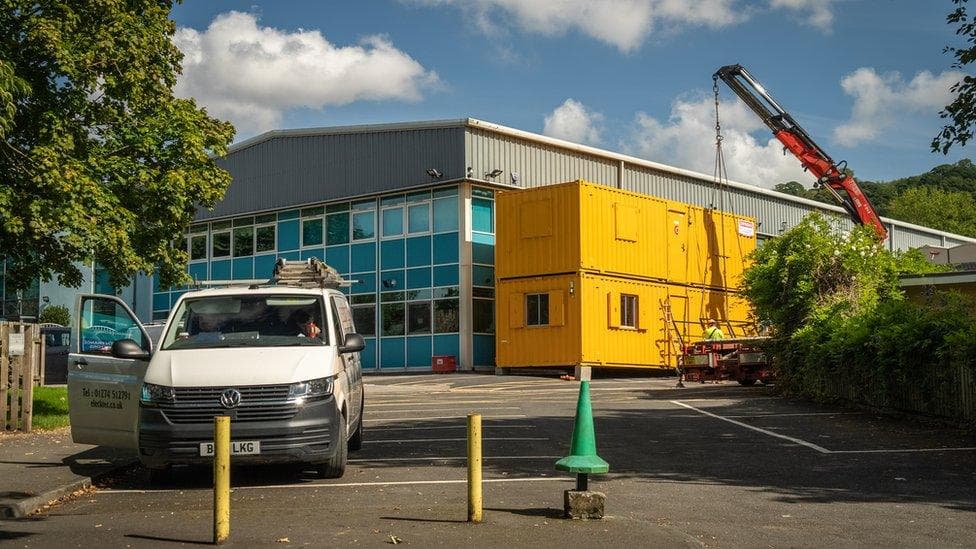We're loading the full news article for you. This includes the article content, images, author information, and related articles.
Headteachers warn that inadequate classrooms, labs, and sanitation facilities, coupled with funding delays, threaten to derail the Competency-Based Curriculum and compromise educational quality for millions of Kenyan children.

As the 2025 academic year draws to a close, Kenyan school administrators are raising serious concerns over a deepening infrastructure crisis that could undermine the upcoming transition to senior school under the Competency-Based Curriculum (CBC). At their annual national conference in Mombasa on Monday, November 10, 2025, primary school heads highlighted critical shortages of essential facilities, including laboratories, workshops, and ICT equipment, as major obstacles to effective CBC implementation.
The concerns are substantiated by recent data. A July 2025 joint report by the Zizi Afrique Foundation and Usawa Agenda revealed severe deficiencies across the sector. The report found that only 48% of learners in public junior schools have access to laboratory facilities, a crucial component for STEM subjects. Sanitation is another pressing issue, with the national average toilet ratio at one toilet for every 66 boys and one for every 62 girls, more than double the Ministry of Education's recommended standard of 1:30 for boys and 1:25 for girls.
The government has acknowledged these challenges and allocated significant resources to the education sector. In the 2025/26 budget presented on June 12, 2025, the education sector received the largest share, amounting to KSh702.7 billion, nearly 28% of the total national budget. This allocation includes KSh1.7 billion specifically for infrastructure improvement in primary and secondary schools. Furthermore, Education Cabinet Secretary Julius Ogamba informed the Senate in October 2025 that the ministry was actively working to close the infrastructure gaps. President William Ruto also announced a partnership with the National Government Constituency Development Fund (NG-CDF) to complete over 11,000 classrooms for Grade 9 before January 2025.
However, school heads argue that the allocated funds are insufficient. The Kenya Elementary School Heads Association (KECSHA), formerly KEPSHA, has stated that the government's allocation of KSh1 million per classroom is inadequate to meet construction targets. They are advocating for an increase in capitation per student, from the current KSh1,450 to KSh3,000 for primary learners, and from KSh15,000 to at least KSh20,000 for junior secondary students, to manage the resource-intensive demands of CBC.
The infrastructure deficit poses a direct threat to the core principles of CBC, which emphasizes practical, learner-centered approaches. Studies have shown a strong positive correlation between the availability of adequate infrastructure and the effective implementation of the curriculum. Overcrowded classrooms, the lack of laboratories, and poor ICT integration limit teachers' ability to engage students effectively and hinder the development of necessary competencies. The problem is particularly acute in traditionally marginalized and remote areas, exacerbating educational inequalities.
The crisis is compounded by issues of financial mismanagement. A 2023/2024 report from the Auditor-General, Nancy Gathungu, uncovered widespread irregularities in school infrastructure projects valued at KSh6.6 billion across 30 counties. The audit revealed stalled projects, shoddy workmanship, and suspicious payments, with 72% of the contract value paid out while only 77% of the work was completed. By June 30, 2024, construction had not even begun on hundreds of planned classrooms, laboratories, and sanitation facilities. This raises critical questions about the efficient use of taxpayer money and the oversight mechanisms within the State Department for Basic Education.
As stakeholders prepare for the 2026 school year, the calls for urgent and transparent government intervention are growing louder. The National Parents Association has urged for a clear policy on infrastructure development to protect parents from being burdened with extra levies for construction projects. Teachers' unions, including the Kenya Union of Post Primary Education Teachers (KUPPET), have consistently highlighted the need for improved infrastructure to avert a looming education crisis. Ensuring that allocated funds are used effectively and that schools are adequately equipped remains a critical challenge for the government to address to safeguard the future of Kenyan education.
Keep the conversation in one place—threads here stay linked to the story and in the forums.
Sign in to start a discussion
Start a conversation about this story and keep it linked here.
Other hot threads
E-sports and Gaming Community in Kenya
Active 9 months ago
The Role of Technology in Modern Agriculture (AgriTech)
Active 9 months ago
Popular Recreational Activities Across Counties
Active 9 months ago
Investing in Youth Sports Development Programs
Active 9 months ago